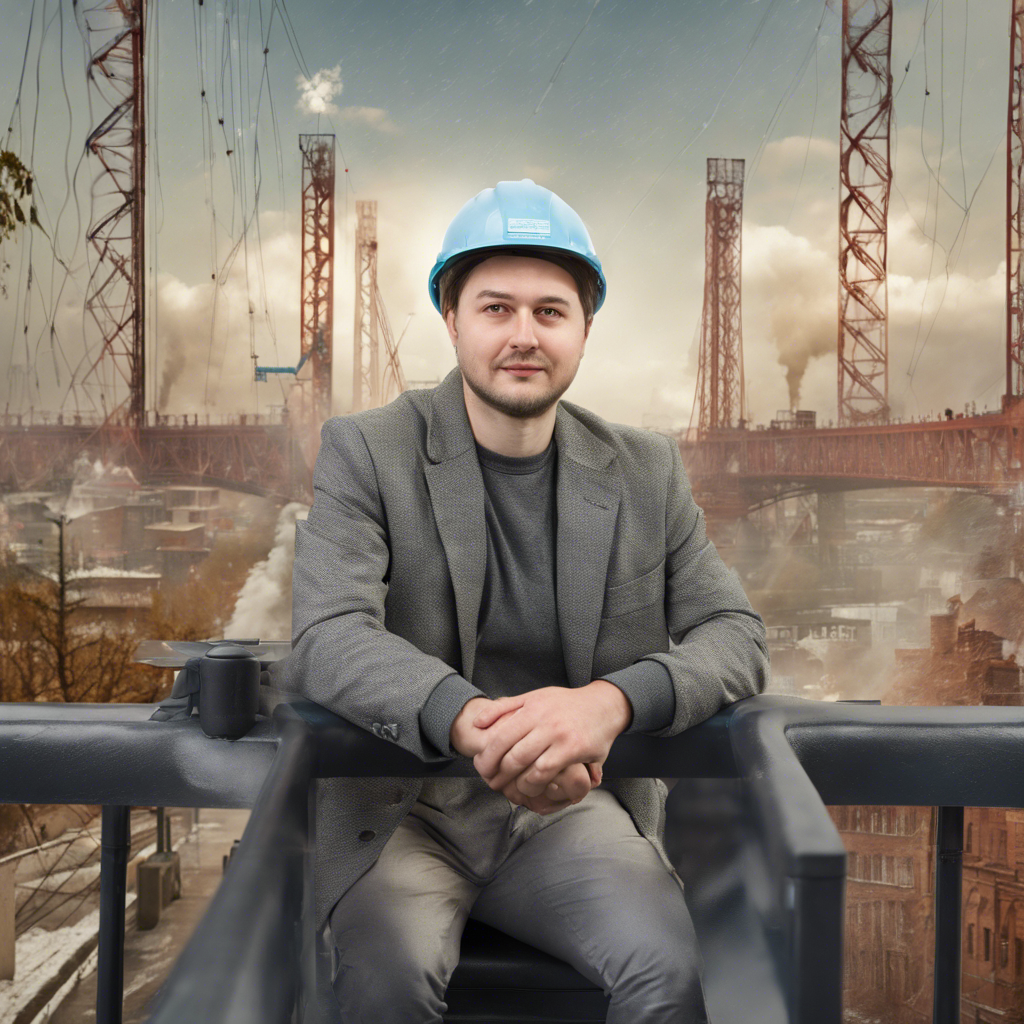Gosha Geogdzhayev: Bridging the Gap Between Climate Science and Localized Impacts

A Multi-Talented MIT Student Employs Emulator Models to Enhance Climate Predictions
Gosha Geogdzhayev, a senior at MIT, is a remarkable individual with a passion for climate science and a talent for writing. Inspired by a childhood fascination with satellite images of the Earth’s atmosphere, Geogdzhayev is now working on creating climate model “emulators” to provide localized predictions of climate change impacts. His research aims to reshape the scientific approach to studying climate trends and offer more accurate predictions that can inform policymakers, businesspeople, and concerned individuals. Beyond his scientific pursuits, Geogdzhayev also finds solace and inspiration in writing poetry, which he believes enhances his ability to communicate effectively with others.
Localizing Climate Predictions through Emulator Models
Geogdzhayev’s research focuses on developing climate model “emulators” that can provide localized predictions of climate change impacts. While global climate models (GCMs) offer broad predictions, they often lack the ability to analyze specific impacts in localized areas. By utilizing simpler emulator models that learn from GCMs and other data sources, Geogdzhayev aims to answer specialized questions and project the frequency of extreme heat events in Nigeria. His work has the potential to revolutionize climate predictions and provide valuable insights for decision-makers across various sectors.
A Multifaceted Approach to Climate Science
Geogdzhayev’s passion for climate science has led him to collaborate with renowned institutions such as Transsolar KlimaEngineering, NASA, NOAA, FU Berlin, and MIT. Through these collaborations, he has explored diverse applications of climate science, including severe weather alerts, predictions of late seasonal freezes, and eco-friendly building design. Geogdzhayev’s wide-ranging projects showcase his commitment to understanding the complex systems that drive climate change and finding practical solutions to mitigate its effects.
The Power of the Written Word
In addition to his scientific pursuits, Geogdzhayev has a deep love for writing, which he discovered even before his interest in climate science. Writing poetry provides him with a creative outlet and a means to quiet his busy mind. Geogdzhayev believes that writing helps him understand himself better and improves his ability to communicate effectively with others. He has attended poetry workshop classes at Harvard University, expanding his horizons beyond MIT and nurturing his creative side. Geogdzhayev’s ability to merge science and writing is evident in his forthcoming publication in the peer-reviewed journal “Physica D: Nonlinear Phenomena,” where he explores the validity of climate statistics under climate change through an abstract mathematical system.
Leadership and Teaching
Geogdzhayev’s leadership skills shine through his involvement in various roles at MIT. As a floor chair for his living community, Burton 1, he spearheaded efforts to rebuild a sense of community following the pandemic-induced social stagnation and dorm renovation. Geogdzhayev’s dedication to fostering connections and organizing social events has made him an integral part of his dorm community. Additionally, he has embraced teaching opportunities as a peer mentor in the Physics Mentorship Program and as a climate modeling instructor for local high school students. Geogdzhayev’s passion for teaching and research suggests a future as a university professor dedicated to both sharing knowledge and conducting groundbreaking research.
Conclusion:
Gosha Geogdzhayev’s journey as a climate scientist and writer exemplifies the power of interdisciplinary pursuits. Through his development of climate model emulators, he aims to bridge the gap between global climate predictions and localized impacts, offering more accurate insights into climate change. His love for writing and poetry not only provides him with a creative outlet but also enhances his ability to communicate effectively, a skill vital in both scientific and personal endeavors. Geogdzhayev’s leadership and teaching experiences further highlight his commitment to making a positive impact in his community and inspiring the next generation of scientists. As he prepares to pursue a PhD in climate science or applied math, Geogdzhayev’s passion and talent are sure to continue shaping the field of climate science for years to come.





